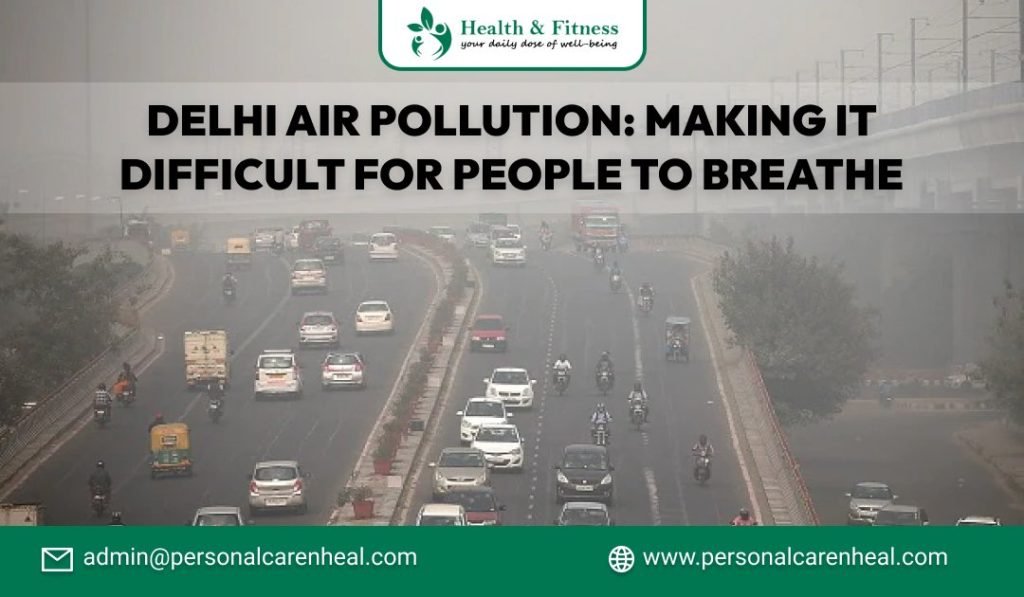Good air quality is important to breathe and nowadays, in Delhi, people are experiencing air pollution problem which makes them uncomfortable to breathe. Due to the degraded quality of air in Delhi, legislative authorities are concerned about people who live in Delhi. Even Noida schools asked to remain closed till 8 November, and classes will be conducted online. With the increasing air pollution, parents and environmentalists demand the closure of the school and people from different states and regions are used to check Delhi air pollution news because everyone is concerned about Delhi citizen’s health. National capitals’ air quality exceeds the 450 mark on Air Quality Index. If AQI is more than 400, then it can be dangerous for human beings and it can affect people with existing diseases. In today’s blog, we will discuss Delhi air pollution, its causes and action plans by the government.
What are Delhi Air Pollution Causes?
Everyone knows the air pollution problem in Delhi is always in the unhealthy range starts from 101 to 150 on the air quality index (AQI). Many people blame Diwali fireworks for detrimental air pollution but there are various reasons for degraded air quality in the national capital. As per the Observer Research Foundation and the Center for Science and Environment, Delhi air pollution causes are:
- Vehicle emission
- Industrial emission
- Construction work
- Diwali fireworks
- Stubble burning in nearby areas
When the air quality in Delhi starts to peak during and after the Diwali festival, crackers are one factor increasing this health crisis. As per the System of Air Quality and Weather Forecasting and Research (SAFAR), 46% of air pollution is because of stubble burning in the winter season.
What AQI Level is Considered Safe?
According to India’s Air Quality Index, an AQI is considered good if it ranges from 0 to 50, if it starts from 51 to 100, then it is acceptable. Further, AQI levels are non-acceptable, which means 101 to 200 AQI level is considered moderate, 201 to 300 is termed poor, 301 to 400 is termed extremely poor, 401 to 500 is severe, and above 500 is termed severe-plus emergency. As you know, the air quality index exceeds 450 marks in Delhi, which means it is at peak of danger. It simply means that Delhi’s air quality is decreasing day by day, and it is not good for public health.
What is Delhi’s Action Plan to Get Rid of Delhi Air Pollution?
The Central Pollution Control Board (CPCB) decided to roll out the graded response action plan (GRAP) in 2016. This plan was executed in January 2017 by the Ministry of Environment, Forest and Climate Change. Basically, the GRAP consists of emergency measures that are executed in four phases based on how much air quality worsened. After that, it is checked by AQI. If the particulate matter (PM) 2.5 level in the air ranges between 61 and 120, then it is termed as ‘moderate to poor’ AQI, if it is 121 to 250, then it is considered ‘very poor’, 251 to 360 is considered ‘severe’ and above 350 is severe plus.
The first step of GRAP is implemented when air quality falls into the poor category. People have to pay fines to the government if they are caught burning garbage and sweeping without sprinkling water. The action plan also includes spraying water on roads if there are heavy vehicle movements.
If the air quality is very poor, then the next step is implemented, which include banning diesel generators, increasing metro and bus frequency, increasing parking fee, and issuing advisories for the elderly, children, and people who have respiratory issues to remain indoors.
Once the air quality becomes severe, the next step can be implemented with a ban on brick kilns, hot mix plants, and crushers. The fourth and last phase is imposed when the air quality falls into the severe plus category. In such an emergency, the GRAP action plan can stop all the construction works and a ban will be put on the usage of heavy vehicles, and schools can remain closed.
Conclusion
At present, measures under the fourth phase of GRAP are in force in the national capital after the burning of stubble in some states pushed the air quality into a severe category. Day by day, the air quality degrades and directly impacts the health of people. Due to this fact, schools are asked to remain closed, and various safety precautions need to be taken. Moreover, you can subscribe to Personal Care N Heal to get more updates on health and fitness-related blogs.



